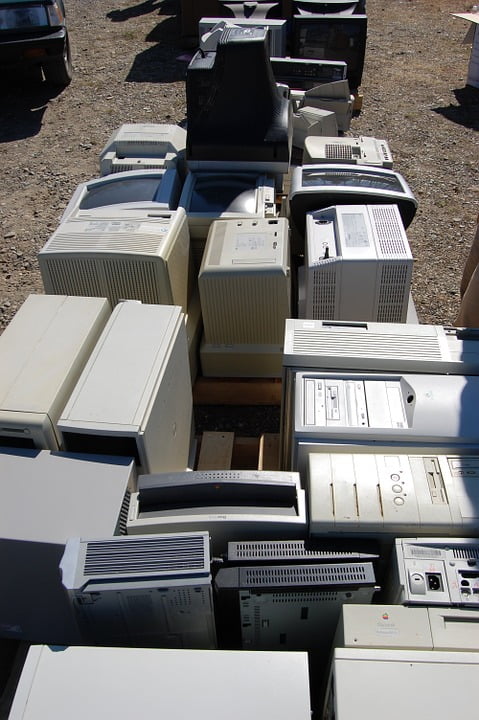
Dealing with Office E-Waste
You may be utterly aware of recycling office waste and practicing proper segregation. But what about old computers, printers, and other electronics? These materials, also known as office electronic waste or e-waste, require special handling.
What Is the Concern with E-Waste?
You may assume that office e-waste is harmless. That’s because you can only see what’s outside – the computer monitor you no longer use or the old TV set you replaced with a smart, elevated one.
You probably don’t think about what’s inside: hazardous materials like mercury, beryllium, cadmium, lead, arsenic, and brominated flame retardants. If handled incorrectly and exposed, these elements can cause neurological damage, organ damage, and other severe illnesses.
How Does E-Waste Affect the Environment?
Electronic waste harms the environment in the same way that it can cause severe illness in humans. In 2016, the United States alone produced approximately 6.9 million tons of office e-waste. The majority of this will almost certainly end up in the trash. E-waste accounts for only 2% of landfill debris but accounts for more than two-thirds of heavy metal waste.
The effect on water Computer batteries and mobile phones sustain damage, lithium, mercury, barium, and other heavy metals. These contaminants can seep into the soil and end up in the groundwater. As a result, waste containing heavy metals should be properly handled and not disposed of in a landfill.
The soil’s reaction. Toxic heavy metals and chemicals from office e-waste enter the soil-crop-food chain. This contaminates the soil, rendering the farmland unfit for producing clean and safe food. These chemicals are also not biodegradable, increasing the risk of human and animal exposure to these toxins.
How Can I Start reducing My Office’s E-Waste?
Building electronic devices require a lot of energy, from creating plastic parts to mining materials and resources. Here are a few steps to avoid producing more e-waste than is necessary.
1. Alter the way you purchase devices.
Purchase computers and other equipment from companies with end-of-life management plans for the products they manufacture. Some businesses will take them back to be recycled. If you can’t find such a company for every device you buy, make sure whatever you get won’t end up in a landfill. It is usually beneficial to learn about your state’s recycling laws.
2. Rethink your options before making a purchase.
Please consider whether you need that extra device before buying it. Rather than purchasing multiple products with mostly single functions, look for a single device that can perform various tasks. This will help you reduce your e-waste while also saving you money.
3. Purchase eco-friendly goods
When buying electronics, look for products with the Energy Star label. You can also select devices certified by the Electronic Product Environmental Assessment Tool (EPEAT). EPEAT-registered products meet environmental criteria for end-of-life management, material selection, energy conservation, and definitive guide.
4. Maintain or upgrade your equipment.
Will you have any malfunctioning electronic devices? Could you not get rid of them so quickly? Before you throw them away, try to see if they can be repaired. You may be able to save money by repairing your device rather than purchasing a new one. It would prevent you from contributing to the amount of electronic waste produced by your office.
Improvement can also aid in the reduction of electronic waste. Memory upgrades, software upgrades, or new hard drives can help your old electronics run faster and more efficiently. As a result, there is no need for you to try to get rid of them.
5. Keep your electronics secure.
Purchase a keyboard protector for your laptop or a phone case. Maintain the cleanliness of your devices and avoid overcharging the battery. All of this will help to extend the life of your electronics.
7. Recycle as much as probable.
If your electronic devices are too destroyed to be repaired or donated, your next option is to recycle them. Some manufacturers and retailers provide a return program, so you must schedule a run once you’ve accumulated enough e-waste. Some of these businesses also support recycling actions.
Let Us Handle All of Your Waste!
We are the company to contact if you need your waste – electronic or otherwise – disposed of. Jani-Serv, Inc has been providing janitorial and commercial cleaning services to businesses in Salt Lake City, Utah, for over 15 years. Allow us to take care of your company as well. Contact us today to learn more.
Caring precludes sharing. Please share!





